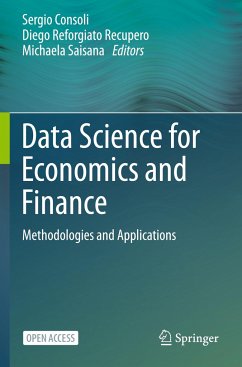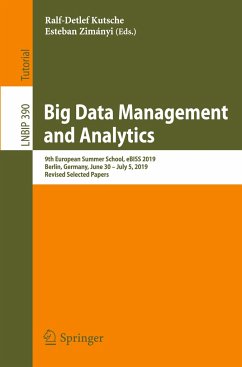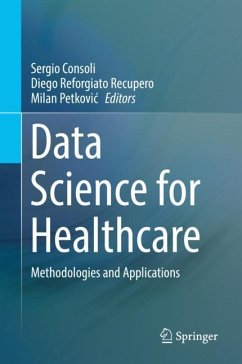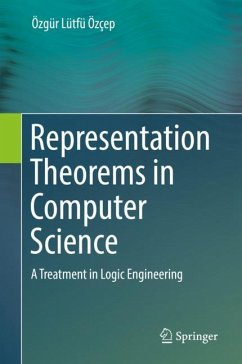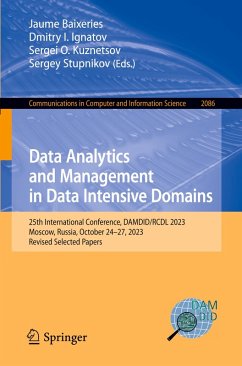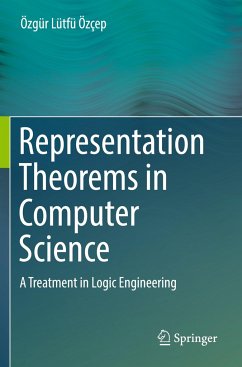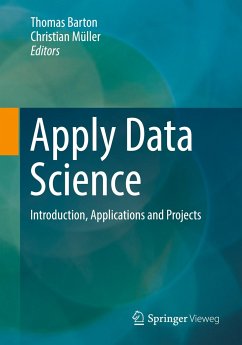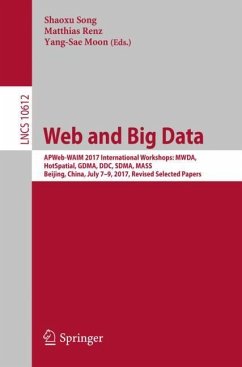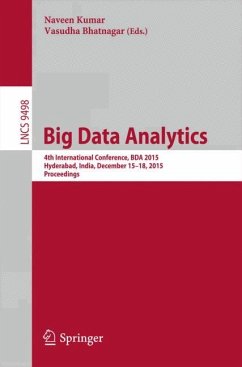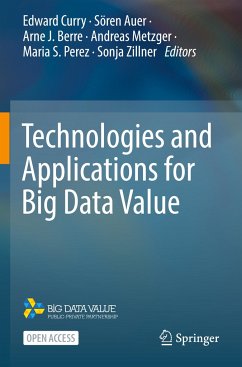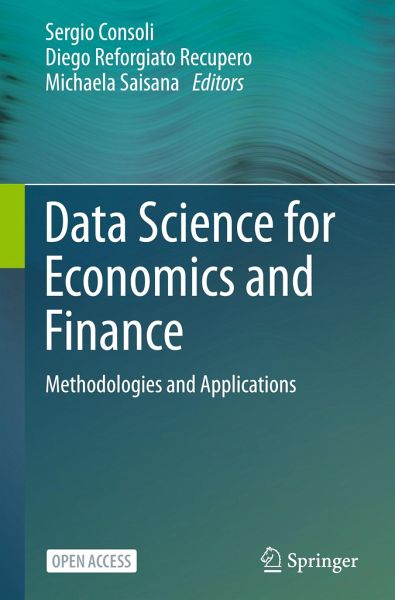
Data Science for Economics and Finance
Methodologies and Applications
Herausgegeben: Consoli, Sergio; Reforgiato Recupero, Diego; Saisana, Michaela
Versandkostenfrei!
Versandfertig in 6-10 Tagen
38,99 €
inkl. MwSt.

PAYBACK Punkte
19 °P sammeln!
This open access book covers the use of data science, including advanced machine learning, big data analytics, Semantic Web technologies, natural language processing, social media analysis, time series analysis, among others, for applications in economics and finance. In addition, it shows some successful applications of advanced data science solutions used to extract new knowledge from data in order to improve economic forecasting models.The book starts with an introduction on the use of data science technologies in economics and finance and is followed by thirteen chapters showing success st...
This open access book covers the use of data science, including advanced machine learning, big data analytics, Semantic Web technologies, natural language processing, social media analysis, time series analysis, among others, for applications in economics and finance. In addition, it shows some successful applications of advanced data science solutions used to extract new knowledge from data in order to improve economic forecasting models.
The book starts with an introduction on the use of data science technologies in economics and finance and is followed by thirteen chapters showing success stories of the application of specific data science methodologies, touching on particular topics related to novel big data sources and technologies for economic analysis (e.g. social media and news); big data models leveraging on supervised/unsupervised (deep) machine learning; natural language processing to build economic and financial indicators; and forecasting and nowcasting ofeconomic variables through time series analysis.
This book is relevant to all stakeholders involved in digital and data-intensive research in economics and finance, helping them to understand the main opportunities and challenges, become familiar with the latest methodological findings, and learn how to use and evaluate the performances of novel tools and frameworks. It primarily targets data scientists and business analysts exploiting data science technologies, and it will also be a useful resource to research students in disciplines and courses related to these topics. Overall, readers will learn modern and effective data science solutions to create tangible innovations for economic and financial applications.
The book starts with an introduction on the use of data science technologies in economics and finance and is followed by thirteen chapters showing success stories of the application of specific data science methodologies, touching on particular topics related to novel big data sources and technologies for economic analysis (e.g. social media and news); big data models leveraging on supervised/unsupervised (deep) machine learning; natural language processing to build economic and financial indicators; and forecasting and nowcasting ofeconomic variables through time series analysis.
This book is relevant to all stakeholders involved in digital and data-intensive research in economics and finance, helping them to understand the main opportunities and challenges, become familiar with the latest methodological findings, and learn how to use and evaluate the performances of novel tools and frameworks. It primarily targets data scientists and business analysts exploiting data science technologies, and it will also be a useful resource to research students in disciplines and courses related to these topics. Overall, readers will learn modern and effective data science solutions to create tangible innovations for economic and financial applications.



